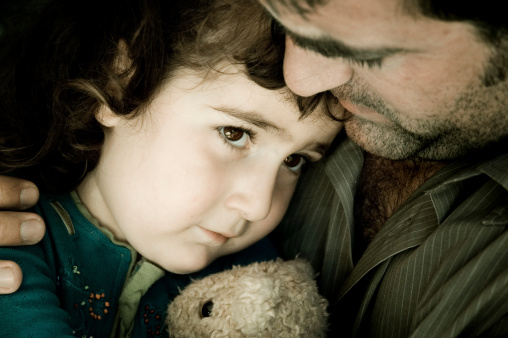
In divorce many people hire attorneys with the hope of receiving what the law entitles them to receive. They focus on their rights and ask their lawyer to help them get what “the law” provides, perhaps believe that this is the best way to protect their interests. Most people don’t realize how focusing on the law and “rights” is setting the bar very low and on occasion, guarantees them that they will need to settle for the very minimum rather than trying to achieve their most important goals.
Divorce laws are created to establish minimum standards for the government to apply if the family cannot come up with a solution on its own. For example, the child support guidelines give you an idea about the minimum amount that would be required for the support of your children if a judge is required to intervene. The property division that your lawyer tells you will be ordered under “the law” merely describes the minimum that the law will compel. The parenting schedule normally describes the minimum times that you must be allowed to see your children. Nevertheless, it is a curious aspect of divorce law that people often start out focusing on those minimums and do not stop to reflect on what might be possible.
Striving for minimums is an unusual way to begin down any path, particularly with something as important as family relationships. Outside of divorce, few of us would ever think that we should provide only the minimum to our family members. We would rarely respond to needs of our children, or our spouse, or a parent or even an aunt or uncle for that matter, and say “what is the very minimum that the law would compel me to do?” To the contrary, faced with these situations outside of divorce, we would be drawn to think in terms of doing the right thing; doing the best we can do under the circumstances. Yet, as soon as we enter the divorce world, we automatically assume this “minimum only” mentality and we hire lawyers to fight over those minimums.
No doubt some you are thinking that divorce is different because you are dealing with an ex spouse and that the rules of conscience and decency should not have the same sway as with a real family member. But is that really how it is?
First of all, if there are children involved, it is difficult to enforce minimums without catching them in the crossfire. Because your children will live in the same house as your former spouse for a significant portion of their lives, there is no way to force your spouse to accept minimums without impacting your children, at least to a degree. In addition, is your spouse, the mother or father of your children, someone who can be immediately relegated to the role of non-relative and allow you to feel a complete indifference to their well-being, (or worse)? No doubt, many divorcing people have found ways to view of their ex spouse in this way. However, most people, once they get past the anger, fear or sadness, admit that they do not hold this complete indifference and, in fact, express real caring, and concern for their ex spouse.
So, how do we shed the “minimums” mentality and approach divorce by setting the bar much higher? It will take more than one blog to cover the many different ways to create better settlements by appealing to higher standards. But here is a start. Go to
www.collaborativelaw.org or to www.divorcechoice.com and find a divorce professional who speaks this language. You may be surprised by what is possible.
 Divorce is a challenging life experience for children, and parents worry what the impact will be on their children’s lives. Based on my work with families of divorce, I have three specific suggestions for how parents can empathetically support their children during this difficult and often painful transition:
1. Never put your children in the middle of parental conflict.
This cannot be overstated: exposure to parental conflict is toxic for children. Heated arguments around children, even if parents believe their children can’t overhear, negatively charge the environment in the home, and kids will feel it. Critical or disrespectful words about a parent said by the other parent in the hearing range of their children make kids confused, sad and often angry. I have heard many stories from tearful children about trying to get parents to stop arguing and belittling each other. You would never feed your children poisonous food; do not make them absorb poisonous words.
2. Remember that children deserve the best safe parenting they can get from both parents.
Be civil, treat each other with courtesy and remind your children that both parents love them. Despite your hurt, anger or betrayal as a spouse, remember that your child’s relationship with and feelings about your soon-to-be-ex are separate from yours. Resist the urge to try to get your child on your side, or to alienate your child from the other parent. Of course real safety concerns must be addressed and may result in protective measures like supervised parental access. But it is not fair to try to negatively manipulate your child’s feelings about the other parent just because you are angry.
3. Listen to your children and stay attuned to their needs.
The emotional and time demands of a divorce can understandably absorb parents’ time and attention at the exact time their children may need extra reassurance. Because regular routines are usually reassuring to children, try to designate time to spend with your children doing normal family activities. Let them know whatever feelings they have about the divorce are okay, and you will always love and support them. Check in with them to see how they’re doing, but read their cues if they tell you you’re asking too often.
Divorce is a challenging life experience for children, and parents worry what the impact will be on their children’s lives. Based on my work with families of divorce, I have three specific suggestions for how parents can empathetically support their children during this difficult and often painful transition:
1. Never put your children in the middle of parental conflict.
This cannot be overstated: exposure to parental conflict is toxic for children. Heated arguments around children, even if parents believe their children can’t overhear, negatively charge the environment in the home, and kids will feel it. Critical or disrespectful words about a parent said by the other parent in the hearing range of their children make kids confused, sad and often angry. I have heard many stories from tearful children about trying to get parents to stop arguing and belittling each other. You would never feed your children poisonous food; do not make them absorb poisonous words.
2. Remember that children deserve the best safe parenting they can get from both parents.
Be civil, treat each other with courtesy and remind your children that both parents love them. Despite your hurt, anger or betrayal as a spouse, remember that your child’s relationship with and feelings about your soon-to-be-ex are separate from yours. Resist the urge to try to get your child on your side, or to alienate your child from the other parent. Of course real safety concerns must be addressed and may result in protective measures like supervised parental access. But it is not fair to try to negatively manipulate your child’s feelings about the other parent just because you are angry.
3. Listen to your children and stay attuned to their needs.
The emotional and time demands of a divorce can understandably absorb parents’ time and attention at the exact time their children may need extra reassurance. Because regular routines are usually reassuring to children, try to designate time to spend with your children doing normal family activities. Let them know whatever feelings they have about the divorce are okay, and you will always love and support them. Check in with them to see how they’re doing, but read their cues if they tell you you’re asking too often.  Divorce is a challenging life experience for children, and parents worry what the impact will be on their children’s lives. Based on my work with families of divorce, I have three specific suggestions for how parents can empathetically support their children during this difficult and often painful transition:
1. Never put your children in the middle of parental conflict.
This cannot be overstated: exposure to parental conflict is toxic for children. Heated arguments around children, even if parents believe their children can’t overhear, negatively charge the environment in the home, and kids will feel it. Critical or disrespectful words about a parent said by the other parent in the hearing range of their children make kids confused, sad and often angry. I have heard many stories from tearful children about trying to get parents to stop arguing and belittling each other. You would never feed your children poisonous food; do not make them absorb poisonous words.
2. Remember that children deserve the best safe parenting they can get from both parents.
Be civil, treat each other with courtesy and remind your children that both parents love them. Despite your hurt, anger or betrayal as a spouse, remember that your child’s relationship with and feelings about your soon-to-be-ex are separate from yours. Resist the urge to try to get your child on your side, or to alienate your child from the other parent. Of course real safety concerns must be addressed and may result in protective measures like supervised parental access. But it is not fair to try to negatively manipulate your child’s feelings about the other parent just because you are angry.
3. Listen to your children and stay attuned to their needs.
The emotional and time demands of a divorce can understandably absorb parents’ time and attention at the exact time their children may need extra reassurance. Because regular routines are usually reassuring to children, try to designate time to spend with your children doing normal family activities. Let them know whatever feelings they have about the divorce are okay, and you will always love and support them. Check in with them to see how they’re doing, but read their cues if they tell you you’re asking too often.
Divorce is a challenging life experience for children, and parents worry what the impact will be on their children’s lives. Based on my work with families of divorce, I have three specific suggestions for how parents can empathetically support their children during this difficult and often painful transition:
1. Never put your children in the middle of parental conflict.
This cannot be overstated: exposure to parental conflict is toxic for children. Heated arguments around children, even if parents believe their children can’t overhear, negatively charge the environment in the home, and kids will feel it. Critical or disrespectful words about a parent said by the other parent in the hearing range of their children make kids confused, sad and often angry. I have heard many stories from tearful children about trying to get parents to stop arguing and belittling each other. You would never feed your children poisonous food; do not make them absorb poisonous words.
2. Remember that children deserve the best safe parenting they can get from both parents.
Be civil, treat each other with courtesy and remind your children that both parents love them. Despite your hurt, anger or betrayal as a spouse, remember that your child’s relationship with and feelings about your soon-to-be-ex are separate from yours. Resist the urge to try to get your child on your side, or to alienate your child from the other parent. Of course real safety concerns must be addressed and may result in protective measures like supervised parental access. But it is not fair to try to negatively manipulate your child’s feelings about the other parent just because you are angry.
3. Listen to your children and stay attuned to their needs.
The emotional and time demands of a divorce can understandably absorb parents’ time and attention at the exact time their children may need extra reassurance. Because regular routines are usually reassuring to children, try to designate time to spend with your children doing normal family activities. Let them know whatever feelings they have about the divorce are okay, and you will always love and support them. Check in with them to see how they’re doing, but read their cues if they tell you you’re asking too often. 

 Co-parenting can be challenging even in the most amicable divorces, but there are some personalities disorders that make co-parenting downright difficult. Among these include, but are not limited to: bipolar disorder, borderline personality disorder, and narcissistic personality disorder. We are going to focus on narcissists in this post. Narcissists have a magnified sense of self-importance and lack they empathy for others. Narcissists insist on getting their way regardless of how it may affect others, even their own children. They may make promises to the children in order to gain compliance from the child, then refuse to honor the promises. They can be arrogant, self-centered, manipulative, demanding, and vain. As co-parents, these individuals often feel superior to their former spouse. It is challenging to reason with a narcissist, or attempt to try to get them to see the situation from someone else’s point of view, which makes co-parenting together a great feat.
Sound familiar? Most importantly you must know that your ex’s personality disorder does not need to define your divorce. One of the best things that you can do in this situation is file a parenting plan with the courts. A parenting plan will outline anything from daily routines to holiday schedules. When dealing with a narcissist the more information you have laid out in writing, the more black and white it becomes. A parenting plan with help to maintain firm boundaries with your ex.
When co-parenting with a narcissist you may need to keep your expectations low. You cannot expect the narcissist to tackle parenting with the same parental instincts that you have. What seems like second nature to you, may never cross a narcissist’s radar. Because a narcissist places no value on their children’s feelings, there will likely be emotional messes to clean up. Get your children (and you) into therapy and make it a regular and “normal” part of their lives.
Take comfort in knowing that you are not alone. There are support groups out there, both online and in person, that are aimed specifically towards coping with a narcissistic ex. Divorce is never easy on children. Coping with a narcissistic parent makes a stressful situation even more difficult, but not impossible. Educate yourself on co-parenting through these challenging times, and also commit to self-care to provide some reprieve.
Co-parenting can be challenging even in the most amicable divorces, but there are some personalities disorders that make co-parenting downright difficult. Among these include, but are not limited to: bipolar disorder, borderline personality disorder, and narcissistic personality disorder. We are going to focus on narcissists in this post. Narcissists have a magnified sense of self-importance and lack they empathy for others. Narcissists insist on getting their way regardless of how it may affect others, even their own children. They may make promises to the children in order to gain compliance from the child, then refuse to honor the promises. They can be arrogant, self-centered, manipulative, demanding, and vain. As co-parents, these individuals often feel superior to their former spouse. It is challenging to reason with a narcissist, or attempt to try to get them to see the situation from someone else’s point of view, which makes co-parenting together a great feat.
Sound familiar? Most importantly you must know that your ex’s personality disorder does not need to define your divorce. One of the best things that you can do in this situation is file a parenting plan with the courts. A parenting plan will outline anything from daily routines to holiday schedules. When dealing with a narcissist the more information you have laid out in writing, the more black and white it becomes. A parenting plan with help to maintain firm boundaries with your ex.
When co-parenting with a narcissist you may need to keep your expectations low. You cannot expect the narcissist to tackle parenting with the same parental instincts that you have. What seems like second nature to you, may never cross a narcissist’s radar. Because a narcissist places no value on their children’s feelings, there will likely be emotional messes to clean up. Get your children (and you) into therapy and make it a regular and “normal” part of their lives.
Take comfort in knowing that you are not alone. There are support groups out there, both online and in person, that are aimed specifically towards coping with a narcissistic ex. Divorce is never easy on children. Coping with a narcissistic parent makes a stressful situation even more difficult, but not impossible. Educate yourself on co-parenting through these challenging times, and also commit to self-care to provide some reprieve. 






